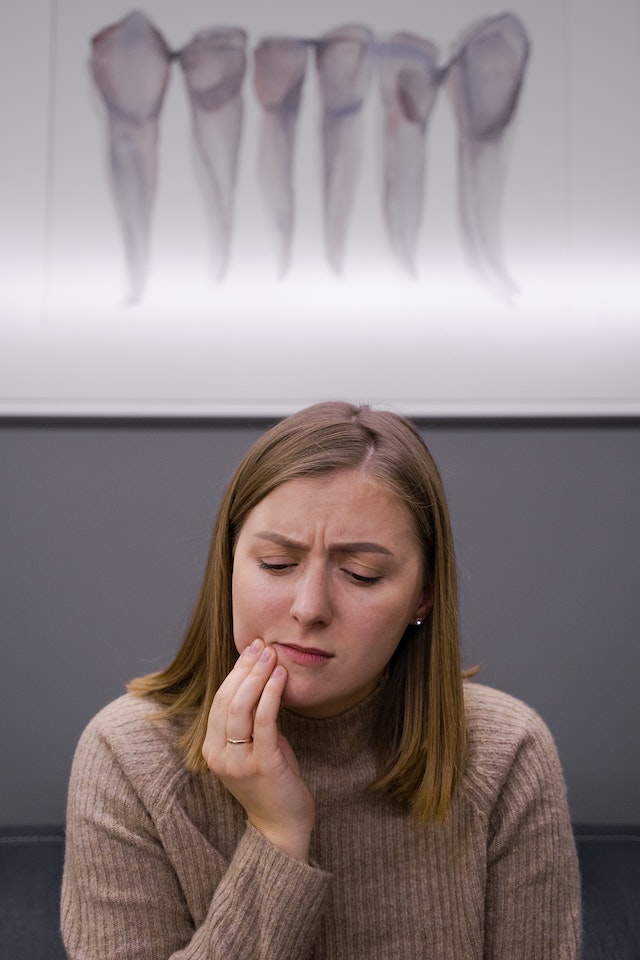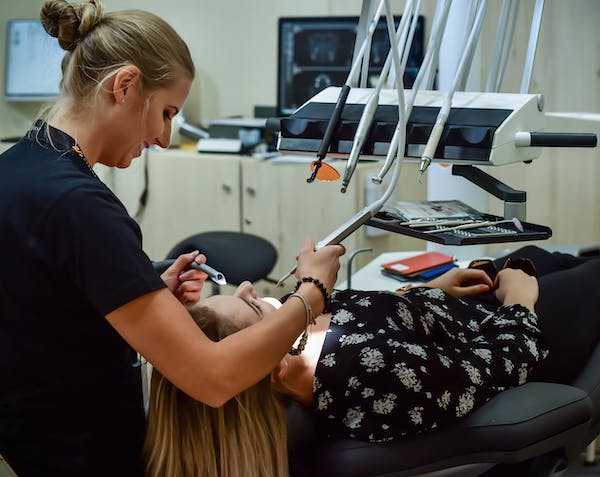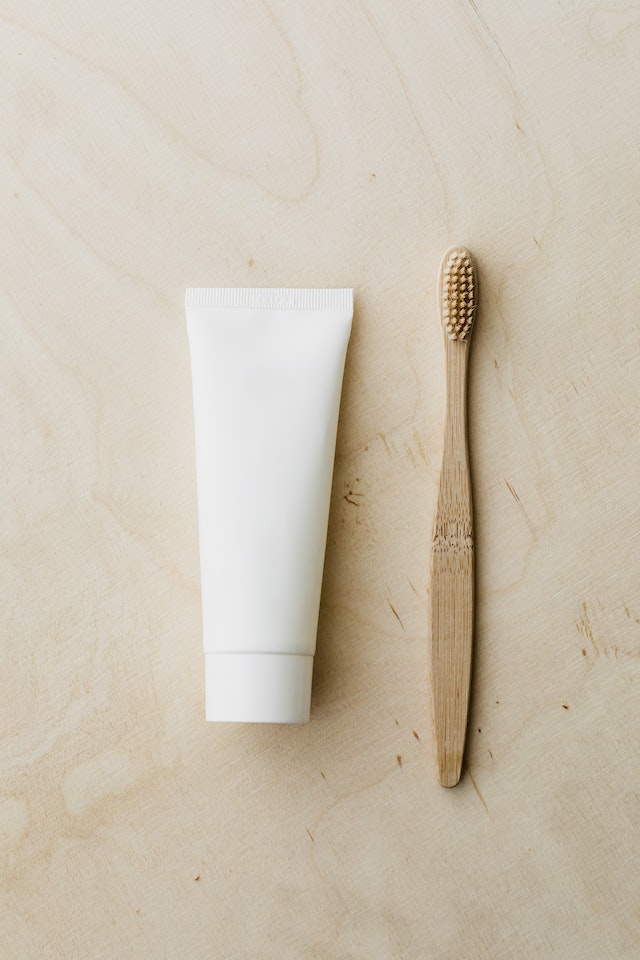Pregnancy and dental treatment is a matter that concerns every pregnant woman. If you’re pregnant, you should have many questions like: can I go to the dentist when I'm pregnant? Is the dental treatment safe during pregnancy?
We are here to answer all your questions about pregnancy and dental treatment.

Most common dental problems during pregnancy
Before we talk about the relationship between pregnancy and dental treatment, we will explain to you some causes of dental problems during pregnancy:
Gingivitis
Pregnancy can cause changes in a woman's body, including her dental health. Hormonal changes during pregnancy increase blood flow to the gums, making them more sensitive and that may cause inflammation.
This condition is called pregnancy gingivitis and can lead to red, swollen, and bleeding gums. If left untreated, pregnancy gingivitis can progress to a more severe form of gum disease called periodontitis, which can lead to tooth loss.
Tooth decay
Pregnancy can also cause dental problems such as tooth decay, which may be exacerbated by changes in eating habits or increased snacking.
Cavities
Morning sickness can expose the teeth to stomach acid, which can erode the tooth enamel and increase the risk of cavities.

Can you go to the dentist during pregnancy
If you experience any dental condition during pregnancy, you may feel anxious about the pregnancy and dental treatment. However, we encourage you to visit the dentist as routine dental checkups and cleanings are safe during pregnancy and should not be postponed.
In fact, regular dental care can help prevent and treat oral health problems that can negatively affect both the mother and the baby.
But, it's recommended that elective treatments, such as whitening of the teeth or other cosmetic procedures are postponed until after delivery.
Myths and facts about pregnancy and dental treatment
There are many myths about pregnancy and dental treatment, we will mention some of them:
Myth: being pregnant doesn't affect your oral health
Fact: being pregnant increases the risk of developing some dental conditions.
Myth: it's not important to tell your dentist that you're pregnant or you're trying to get pregnant
Fact: it's very important to inform your dentist that you're pregnant because it will limit some treatments and procedures.
Myth: there is no relation between your dental health during pregnancy and the baby
Fact: severe gum diseases may increase the risk of a low birth weight baby or even preterm delivery.
Myth: you should not receive anesthesia during pregnancy as it isn't safe
Fact: anesthesia is totally safe during the second and third trimesters, so it's recommended to postpone any dental work that requires using anesthesia during the first trimester.
Dental X-rays during pregnancy
As we are talking about pregnancy and dental treatment, we should mention dental X-rays.
Dental X-rays may be necessary to diagnose and treat certain dental conditions. However, pregnant women should avoid unnecessary X-rays, especially during the first trimester when the baby's organs are developing.
If X-rays are necessary, the dentist will take precautions to minimize the radiation exposure to the developing baby, such as using a lead apron and thyroid collar.
Pregnancy and dental treatment
All pregnant women ask about pregnancy and dental treatment. Will medications harm the baby? Are there medications safe during pregnancy?
Pain Management During Pregnancy
When we talk about pregnancy and dental treatment, the first thing that comes to mind is pain management.
If a pregnant woman experiences dental pain or discomfort, she may be concerned about taking pain medications.
Over-the-counter pain medications such as acetaminophen are generally safe during pregnancy, but it's important to consult with a healthcare provider before taking any medication.
Tooth extraction and dental fillings during pregnancy
Another important topic about pregnancy and dental treatment is extraction and filling.
If a pregnant woman requires dental treatment, such as filling or extraction, it's best to wait until the second trimester when the developing baby is less vulnerable to potential risks.
Before any dental procedure, pregnant women should inform their dentist that they are pregnant and discuss any concerns they may have. In some cases, the dentist may consult with the woman's obstetrician to ensure that the treatment is safe and effective.
Antibiotics that are safe during pregnancy
The decision to use antibiotics during pregnancy should be made on a case-by-case basis after careful consideration of the risks and benefits for both the mother and the developing fetus.
Some antibiotics, such as tetracyclines and sulfonamides, are not recommended during pregnancy as they may harm the developing fetus. However, some antibiotics are considered safe to use during pregnancy, such as penicillins and cephalosporins.
If antibiotics are prescribed during pregnancy, it is important to take them exactly as prescribed and to inform the dentist and obstetrician of any adverse reactions.

Oral hygiene habits during pregnancy
One of the most important topics about pregnancy and dental treatment is oral hygiene.
Maintaining good oral hygiene is very important for both the mother and the developing baby.
Here are some tips for oral hygiene during pregnancy:
Brush and floss regularly
Brush your teeth twice a day and floss regularly to remove any plaques and food particles from your teeth and gums.
Use fluoride toothpaste
Fluoride toothpaste helps to prevent tooth decay and strengthen tooth enamel.
Make sure to use fluoride toothpaste when brushing your teeth.
Rinse with mouthwash
Wash your mouth with an antimicrobial mouthwash to kill bacteria.
Visit your dentist regularly
It is important to visit your dentist for regular check-ups and cleanings during pregnancy. Let your dentist know that you are pregnant so they can take any necessary precautions.
Diet
Eat a balanced diet and limit sugary snacks and drinks to reduce the risk of tooth decay.
Avoid smoking and alcohol
Smoking and alcohol use can increase the risk of dental problems and harm the developing baby.
Treat dental problems promptly
If you experience any dental problems, such as tooth pain or gum swelling, don't be afraid about pregnancy and dental treatment, and seek treatment promptly to prevent further complications.
By following these tips, you can help to maintain good oral health during pregnancy and promote a healthy pregnancy outcome
Overall, good oral health is essential during pregnancy, but there are some precautions when it comes to pregnancy and dental treatment. So, you should inform your dentist that you are pregnant and follow their recommendations for safe and effective dental care.
If you are interested, read more about:
Menstrual Cramps During Pregnancy


You must be logged in to post a comment.